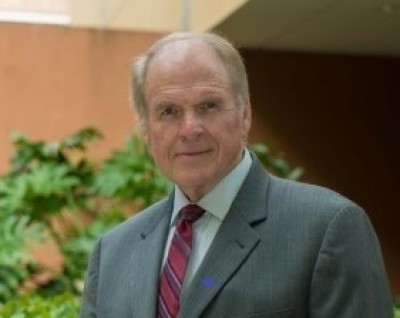How to resist the 'new chaldeans' and the 'cancel culture'
The American cultural elite “disdains the rest of America,” said Yale Professor David Gelernter.[1]
“Members of the new elite may love America, but, increasingly, they are not of it,” wrote conservative commentator Joseph Bottum.[2]

Christopher Lasch lamented the “nearly complete takeover of America’s mechanism of education and credentialing...it’s a question whether the elites even think of themselves as Americans at all.”[3]
Dr. Al Mohler writes that today’s “secular elites have a singular devotion toward the unconditional surrender of divergent theistic worldviews — especially the Christian worldview... a secular society will not tolerate any individual, institution, church, or denomination until it fully surrenders to a secular worldview.”[4]
Every society ultimately is dominated by a cluster of elites who agree about what that worldview, beliefs, and values ought to be.
Consensus becomes conspiracy when the elites collude to force other institutions and individuals into the consensus.
“I should sooner live in a society governed by the first two thousand names in the Boston phone directory than in a society governed by the two thousand faculty members of Harvard University,” William F. Buckley quipped in 1955.
Buckley was resolute in his determination to resist the Consensus Establishment narrative. But how do the rest of us not as erudite and well-funded as Buckley resist the Consensus Establishment and its propaganda?
Daniel in Babylon sets the example. The Bible presents the Babylonian empire in which Daniel, a young Hebrew prophet, was captive, as the prime symbol of the world system attempting to organize itself in defiance of and without God.
Talk about “systemic evil”!
The Chaldean class within Nebuchadnezzar’s kingdom comprised the elitist framers and guardians of “political correctness.”
The contemporary “Chaldean” class consists of
- The Entertainment Establishment (Visualization)
- The Information Establishment (Dissemination)
- The Academic Establishment (Credentialing)
- The Political Establishment (Enforcement)
- The Corporate Establishment (Commercialization)
Nebuchadnezzar himself ordered the Chaldeans to teach Daniel “the literature and language of the Chaldeans.” (Daniel 1:4)
However, it went further than that. After a three-year intensive under the Chaldeans, Daniel and his colleagues were to enter Nebuchadnezzar’s inner circle, feasting on the king’s choice food and drink.
This was a crisis for Daniel. He would have been eating and drinking the absolute best while his fellow Hebrews were surviving on the dregs. Also, some of Nebuchadnezzar’s fare would have been in violation of the strict diet that God had revealed through Moses, and which faithful Hebrews still observed.
Entry to the king’s table would have meant separating from the worldview and practices of Judaism, and his fellow exiles. So, “Daniel made up his mind that he would not defile himself with the king’s choice food or with the wine which he drank...” (Daniel 1:8)
Daniel’s resistance to the Chaldeans of his day teaches us much about how to resist the powerful Consensus Establishment now — both individually and institutionally. Here are important principles:
1. Recognize the crisis as spiritual and the biblically based church the key agency of resistance.
For Daniel, the issue was primarily spiritual. Timothy B. Carney calls the Church America’s “indispensable institution.”[5] The “unchurching of America is the root of America’s economic and social problems.” As the church shrinks from socio-cultural engagement and true worship, the “New Chaldeans” expand into the vacuum.
2. Remember who you are.
The crisis for Daniel was not merely one of personal preference and taste, but of identity itself. His sense of self was in his relationship with the God of Israel and his linkage with His covenant people. Identification with Nebuchadnezzar and the Chaldean worldview would be a violation of Daniel’s personhood.
3. Let your comportment and speech be aligned with your true identity.
Rather than in-your-face, self-righteous refusal, Daniel “sought permission” not to “defile himself.” Don’t let the way you speak and conduct yourself add to the conflict in society.
4. While remembering who you are, engage with the culture as an emissary of the Kingdom of Heaven.
Here is the union of ontology and function. Daniel will serve in Babylon to the extent he can but will not violate his essential being as a servant of God and member of the remnant people.
5. Engage with the Transcendent Kingdom of Heaven as you engage with the immanent world and its culture.
Worship and prayer were crucial in Daniel’s personal lifestyle — to the extent that he would take the consequences of refusal.
6. Be consistent across all ‘administrations’.
Daniel’s work in Babylon began with Nebuchadnezzar, but extended though the seasons of other leaders, right down to Cyrus the Persian, yet Daniel’s mission and style were consistent with his identity throughout.
7. Dig in.
Daniel had “made up his mind” at the outset of his long stay in Babylon not to defile himself. He dug in and maintained that stance all the way.
Toward the end of his life, messengers of God — angels — show Daniel the course of history, and tell him, “go your way to the end; then you will enter into rest and rise again for your allotted portion at the end of the age.”
May it be so for us as well as, like Daniel, we carry out our mission in the present Babylonian world system with its “Chaldeans,” temptations, and trials.
[1] An interview with Victor Hanson Cited in Joseph Bottum, An Anxious Age, page 24.
[2] Ibid.
[3] Ibid., page 33
[4] Al Mohler, The Gathering Storm, page 28-29
[5] Timothy B. Carney, Alienated America, pages 116,119.
Wallace B. Henley’s fifty-year career has spanned newspaper journalism, government in both White House and Congress, the church, and academia. He is author or co-author of more than 20 books. He is a teaching pastor at Grace Church, the Woodlands, Texas.



























